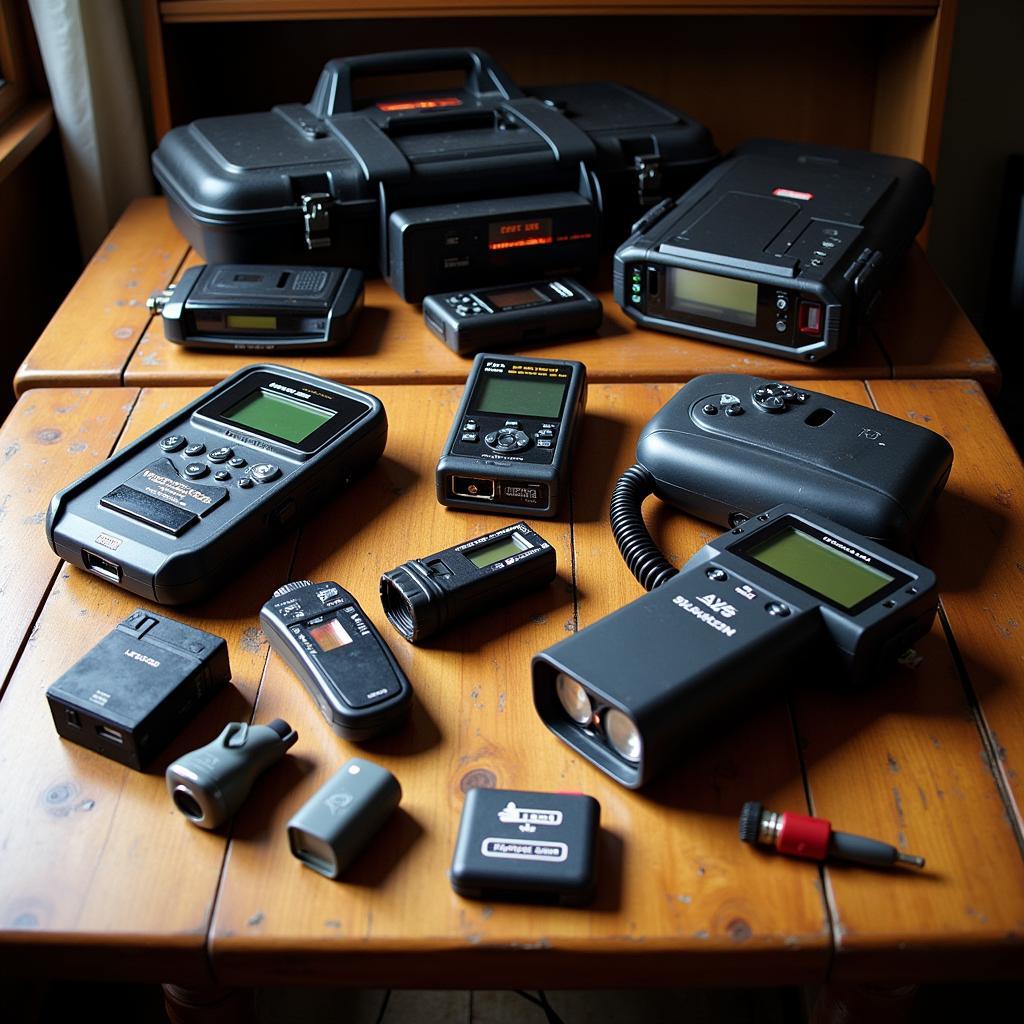Delving into the unknown, whether it’s the mysteries of the paranormal or the complexities of a research project, requires a structured approach. While the allure of the unknown is strong, a systematic method ensures you don’t get lost in the labyrinth of information. So, Which Step Is First In Conducting A Research Project?
Defining Your Paranormal Investigation
Just as a paranormal investigator wouldn’t enter a haunted house without a plan, a researcher shouldn’t embark on a project without a clear objective. Defining the research question is the crucial first step. It’s the compass guiding your entire investigation. Ask yourself:
- What do I want to uncover? Is it the existence of ghosts, the history of a haunted object, or perhaps the psychological factors influencing paranormal experiences?
- Why is this important? Understanding the significance of your research question adds purpose and direction to your efforts.
 Researcher writing down a research question
Researcher writing down a research question
The Importance of Background Research
Once you’ve established your research question, delve into the existing knowledge base. This is where you’ll unearth existing theories, previous studies, and potential methodologies related to your topic. For instance, if you’re researching Electronic Voice Phenomena (EVP), explore the work of pioneers in the field, understand the technology used, and analyze previous EVP recordings.
This stage not only provides context but also helps you refine your research question and avoid duplicating efforts. Think of it as consulting with experienced ghost hunters before venturing into the haunted mansion yourself.
Formulating a Hypothesis
With a solid understanding of existing research, you can now develop a hypothesis. This is essentially an educated guess, a testable statement that predicts the outcome of your research.
For example, your hypothesis could be: “EVP recordings are more likely to occur in locations with high electromagnetic field (EMF) readings.” This statement provides a direction for your research and allows you to collect data to either support or refute it.
Designing Your Investigative Method
How will you test your hypothesis? This is where research design comes into play. This stage involves choosing the right tools and techniques for your investigation.
- Qualitative research, like conducting interviews with individuals who have experienced paranormal activity, provides rich, descriptive data.
- Quantitative research focuses on measurable data, such as EMF readings or statistical analysis of paranormal occurrences.
 A table with EMF readers, voice recorders, and cameras
A table with EMF readers, voice recorders, and cameras
Your chosen methodology should align with your research question and the type of data you need to collect.
Conclusion: The First Step Leads to Enlightenment
Just as a paranormal investigation can lead to a deeper understanding of the unseen world, a well-structured research project can illuminate new knowledge and insights. Remember, the first step, defining your research question, is crucial. It sets the stage for a successful and insightful journey into the unknown.
FAQs
1. What if my research doesn’t support my initial hypothesis?
That’s perfectly fine! Negative results are just as valuable as positive ones. They contribute to the body of knowledge and help refine future research.
2. How do I choose the right research methods for my project?
Consider your research question, the type of data you need, and the resources available to you. Consulting with experts in your field can also be beneficial.
3. Where can I find reliable information for my background research?
Reputable books, peer-reviewed journals, and academic databases are excellent sources of information.
For those seeking further guidance on navigating the world of research, explore our website for articles on research topics for high school students, research and information, and even career paths like postdoctoral researcher jobs and clinical research assistant jobs. You can also find insights into specific research methodologies, such as qualitative research and nursing.
Contact us:
For any assistance or inquiries, reach out to us:
Phone Number: 0904826292
Email: research@gmail.com
Address: No. 31, Alley 142/7, P. Phú Viên, Bồ Đề, Long Biên, Hà Nội, Việt Nam.
Our team is available 24/7 to assist you.